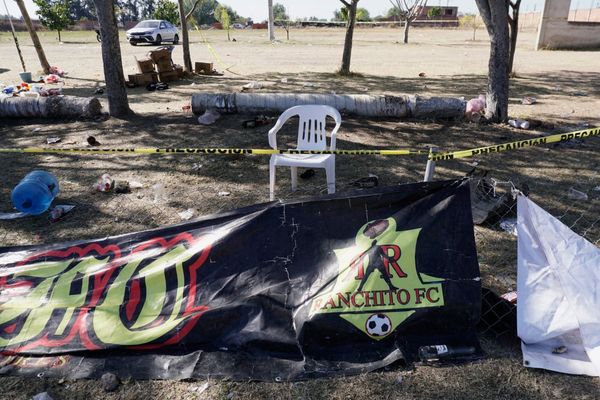
A coroner has said Britain is failing young people and more will die because of under-resourced mental health services, as she ruled that neglect led to the death of a 14-year-old girl.
Penelope Schofield, the senior coroner for West Sussex, said she would write to the health secretary, Sajid Javid, to raise concerns after the case of Robyn Skilton, who killed herself after being let down by “gross failures” in NHS mental health services.
Robyn, from Horsham in West Sussex, disappeared from her family home and took her own life in a park on 7 May last year, her inquest in Chichester heard.
Despite serious concerns about her mental health, Robyn did not get face-to-face consultations, was not seen by a child psychiatrist or assessed for mental health issues, and was discharged from an NHS service a month before her suicide though she was on its high-risk “red list”.
Her father, Alan Skilton, a software company director, told the inquest he pleaded for help, and he described the lack of care his daughter received as “astonishing”. He said he believed that if Robyn had been seen earlier, her mental health would have improved and she would not have killed herself.
Skilton said Robyn was outgoing, sociable and made friends easily, enjoyed ballet, gymnastics and swimming, and was “naturally artistic”. But she had mental health breakdowns, self-harmed repeatedly, attempted suicide, and was admitted to hospital four times. She told medics she was hearing voices and seeing images.
The coroner said: “As a society we are failing young people.” She said she was shocked to hear that the number of young people seeking mental health help had increased by 95%. “Trying to manage it without more resources means we are not providing the help that young people need. Robyn’s case is a testament to that. It’s a clear risk that more lives will be lost if we don’t address it.”
Schofield ruled there were gross failures by Sussex Partnership NHS foundation trust and its child and adolescent mental health service (CAMHS).
She said: “I do appreciate the landscape the trust was working in as Covid-19 heightened the level of complexity, but there were many failings in the care provided to Robyn. The totality of these failures, in my mind, means I must reach a conclusion of neglect. There was a gross failure to provide care for someone in a dependent state. Robyn took her own life while struggling with her mental health.”
Issues outlined by the coroner included a failure by CAMHS to assess Robyn “appropriately or at all”, leading to missed opportunities to address her escalating needs over several years but in particular April 2021 when it was clear there was a danger to her life.
Schofield said there was a failure to arrange face-to-face consultations and to offer Robyn CAMHS treatment. She ruled that the decision to discharge the teenager from CAMHS and instead pursue autism support was inappropriate.
Dr Alison Wallis, the trust’s clinical director for children’s services, told Robyn’s parents: “You didn’t get the service you deserved.” She said Covid had affected her care.
Rebecca Agnew, a solicitor representing the trust, said: “CAMHS didn’t assess Robyn appropriately, leading to missed opportunities for her escalating needs … The trust extends a formal apology to her parents for these failings.”
A spokesperson for Sussex Partnership NHS foundation trust said: “We offer our sincere condolences to the family and friends of Robyn Skilton and apologise unreservedly that the care and support from us did not recognise her vulnerability and provide the intervention and help she needed.
“In response, we have made significant changes to the way we monitor and escalate cases where there is an increase in risk. Working with our partners, we have also introduced a new referral system and we are developing a new drop-in service to provide access to specialist emotional and wellbeing support for children and young people.”
In the UK, the youth suicide charity Papyrus can be contacted on 0800 068 4141 or email pat@papyrus-uk.org, and in the UK and Ireland Samaritans can be contacted on 116 123, or email jo@samaritans.org or jo@samaritans.ie. In the US, the National Suicide Prevention Lifeline is at 800-273-8255 or chat for support. You can also text HOME to 741741 to connect with a crisis text line counselor. In Australia, the crisis support service Lifeline is 13 11 14. Other international helplines can be found at befrienders.org







